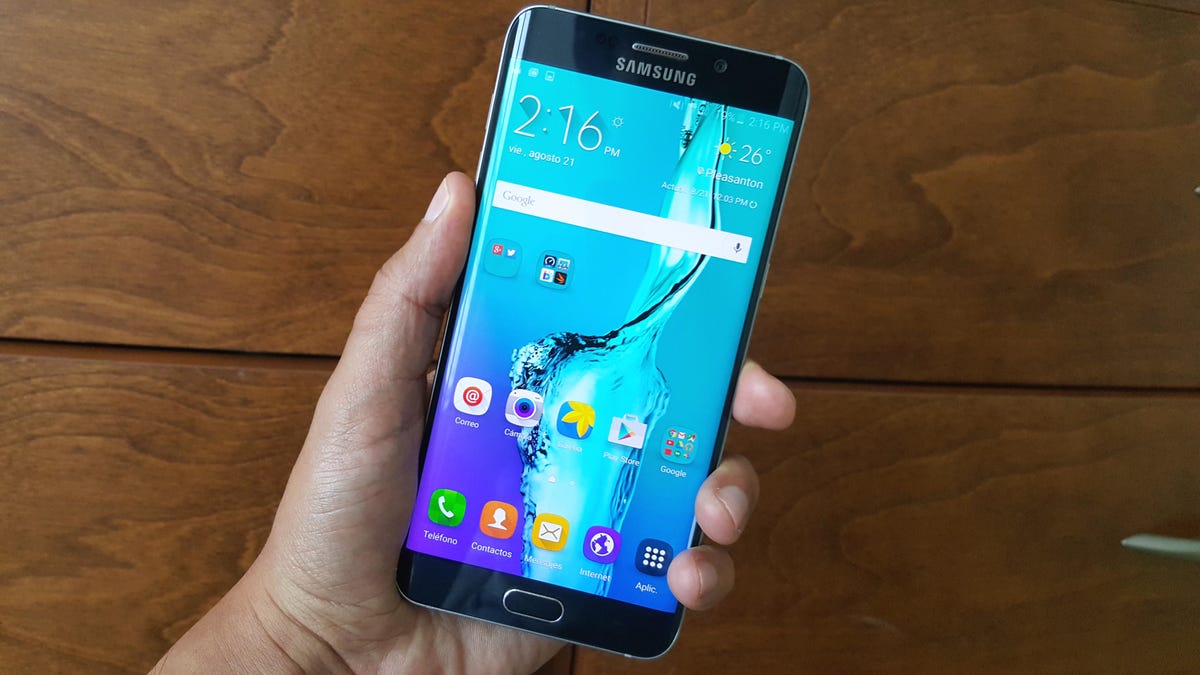Samsung in 2016: Expanding its Galaxy way beyond the phone
The electronics giant, stung by weak smartphone sales, likely will amp up its efforts to infiltrate and interconnect your entire household.
One of Samsung's newest holiday ads, titled "Give the gift of Galaxy," features gift-wrapped packages of various shapes and sizes. People tear off the paper to reveal gadgets like the Galaxy S6 Edge phone, the SUHD television, the Galaxy View tablet, the Gear VR headset and Level headphones.
The tagline? "It's not a phone, it's a Galaxy."
The simple motto is a not-so-subtle reminder that the consumer electronics giant isn't just about smartphones. And as the once rabid interest in its Galaxy S phones wanes, the South Korean company will look to everything from smartwatches to refrigerators to virtual reality in an effort to reignite your excitement about its technology.
You saw a bit of that this year, but look for Samsung to really push the idea of smart everything in 2016. The hype train will roll out of the station in early January at the Consumer Electronics Show in Las Vegas, where you can expect to see a bevy of connected gadgets, except for new notable smartphones.
Samsung is just one of tech's heavy-hitters looking to create a world of devices that surround you and talk to each other, all in the name of bringing ever more convenience into your life. The challenge will be in convincing you to fork over money for these pricey gadgets. That convenience doesn't come cheap, after all.
Samsung will have to work with its partners to get you to shell out. While rival Apple controls every element of its products, Samsung relies on companies such as Android maker Google and virtual-reality specialist Oculus for the software that powers its devices. Its own track record on software hasn't been great: Samsung has even killed some of things, like its WatchOn video control app, that were meant to better link its devices.
With new leadership in its mobile and home-appliance businesses, Samsung will be looking for new sparks of success in 2016. Can it turn its fortunes around, or is it doomed to be another footnote to the roster of tech innovators?
Samsung declined to comment.
Looking to CES
The Consumer Electronics Show is the time for Samsung's electronics business beyond its mobile devices to shine.
There will be plenty of televisions and home appliances, and both areas are sure to have technology that helps them take better advantage of the Internet. SmartThings, the smart-home business Samsung bought in 2014, has played a big role at CES for the past couple of years and likely will remain key to the company's software efforts. Technology developed by SmartThings helps turn smartphones into the remote control for smart products in the home.
Samsung has to pump out a lot more in the SmartThings vein if it wants to convince people that they need not just one Samsung device but several. Building a family of products isn't simple, though. Just ask Microsoft, which has struggled to push the idea of its Windows software powering everything.
"You may have a Samsung TV and a Samsung smartphone, but you don't think about those working together," Jackdaw Research analyst Jan Dawson said. "That's the challenge."
Up next: Smartphones
Samsung's new focus on smart devices doesn't mean it's abandoning its phones. The company remains the world's biggest smartphone vendor, but it has struggled to maintain its momentum with consumers. Its jumbo phones don't hold the sway they used to now that Apple has its own supersized iPhones, and the budget-conscious are gravitating toward products from companies such as Xiaomi and Huawei.
Though Samsung's marquee smartphones will be a no-show at CES, look for them to make an appearance in late February or early March, right around the time of the Mobile World Congress trade show.
Samsung's new chief of mobile, Dongjin Koh, is expected to boost the company's focus on software. He oversaw the creation of some of Samsung's newest software and services, including the Knox security software for business users and Samsung Pay, which lets people pay at the register with their smartphones. Kim also played an instrumental role in forming partnerships with Google and Microsoft and in creating the Galaxy S6 and Note 5.
If Samsung is to create a smartphone experience that better ties in with the rest of its products, Koh will be instrumental.
The company can hardly do worse than it already has. Its track record with software is littered with what critics call "bloatware," including the Galaxy S4's gimmicky features and apps like Group Play. That let users share music and play games with friends nearby. Don't remember Group Play? Neither does anyone else.
The hope is that Koh will help build Samsung's expertise in software and services. Part of that will involve playing nice with Samsung's other businesses, if he actually wants to build an ecosystem. Traditionally, each business has been out for itself, and attempts to connect the company's disparate operations have failed. But it's time for change.
"The new management is going to have to carve a more radical path," Creative Strategies analyst Tim Bajarin said.
Correction at 11:40 a.m. PT:Fixes date SmartThings was acquired.


